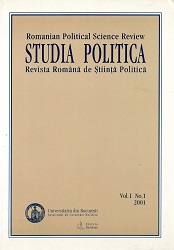Individualism și libertate în gândirea românească interbelică
Individualism and freedom in Romanian interwar thinking
Author(s): Mihaela Czobor-LuppSubject(s): History, Philosophy, Political Philosophy, Recent History (1900 till today), Interwar Period (1920 - 1939)
Published by: Editura Universităţii din Bucureşti
Keywords: Individualism; liberty; Romanian culture, Interwar Period; Romanian philosphy;
Summary/Abstract: The study aims to point at some possible models of individualism in the Romanian philosophy between the wars, constituting itself as a possible bridge between the Western and the Romanian thought and trying to demonstrate the existence of a real basis for the import of Western ideas and traditions. Concentrating on important Romanian philosophers of the period such as Mircea Vulcănescu, Nae Ionescu and Constantin Noica, my first attempt would be to detect a perennial individualism of expression in the philosophy of Vulcănescu, though quite different from the main vein of the Western philosophical thought in regard to the excess of rationali ty and instrumental action, characteristic for the work of Weber, Habermas and Taylor. Then, I would turn to the personality and work of Nae Ionescu, whom I see as embodying the liberty of the exceptional case himself and reflecting well-known Machiavellian ideas through the filter of interpretation offered by both Raymond Aron and Nietzsche. Last author analyzed here, Constantin Noica, reformulated the problems raised by Nae Ionescu referring to the contradiction of being “in history” only when “stepping out” of it, as an inner tension of the Romanian culture. Thus, individiualism can be defined rather as the exception from the rule and the metaphysical denial of history. However, the reconciliation between the “exception” , that is the Romanian culture, and the “rule”, that is the European culture, is still possible when the European culture, as it is defined by Noica, is considered as a possible common ground and the Romanian culture is able to rethink its own traditions, this being also a condition of its own liberty.
Journal: Studia Politica. Romanian Political Science Review
- Issue Year: 1/2001
- Issue No: 1
- Page Range: 163-183
- Page Count: 21
- Language: Romanian

